Could You Go Vegan?
Posted: 31/12/2019
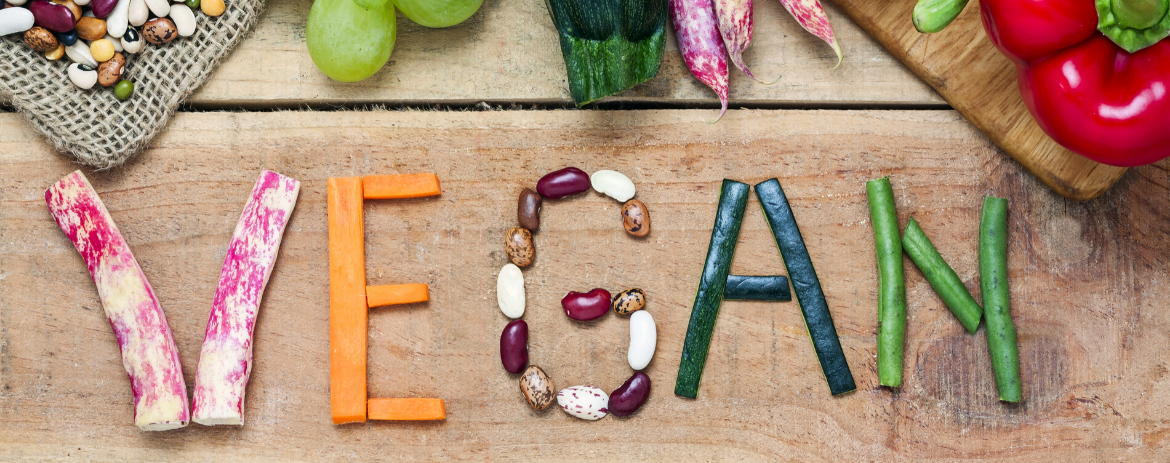
Being vegan is really fashionable right now, and those in favour of this way of eating will tell you that it’s the healthiest diet you can have from a nutritional perspective, plus you get to save not only the lives of animals, but the planet too. For most people, it can be quite difficult to go from where they are now to a 100% vegan diet. So let’s talk about what it means to be vegan, what’s great about it, what’s not so good, and where you might struggle.
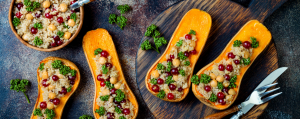
What is a Vegan Diet?
A vegan diet is a stricter version of a vegetarian diet. On top of not eating any meat, fish or seafood, a vegan diet also cuts out any foods made from animal sources, which can be the most nutrient-dense foods you can eat. So this means not just cutting out meat, but also cutting out eggs, milk, yoghurt, butter and cream. And that also means honey, too, as well as certain wines and desserts (gelatin).
There is no set amount of macronutrients and micronutrients for a vegan diet; just vegetables, grains, fruit, nuts, seeds and any other foods made from plants. However, since the main vegan protein sources are pulses and grains, and only a combination of the two provides complete proteins (containing all the amino acids), this can be a high carbohydrate diet by definition.
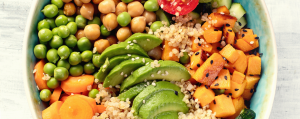
Advantages of Going Vegan
- Cruelty-free
- Better for the environment
- Promotes natural foods
- Rich in vitamin C and fibre, plus other plant chemicals
- Helpful for some health conditions (rheumatoid arthritis, multiple sclerosis, other auto-immune conditions)
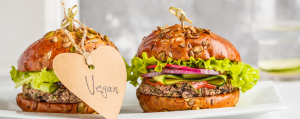
Disadvantages of Going Vegan
- Natural food is not a requirement to comply with the diet
- Does not explicitly encourage healthy eating patterns
- May be nutrient deficient (B12, haem iron, omega-3 fats, complete protein)
- Often high in carbohydrates
- Does not limit or exclude sugar
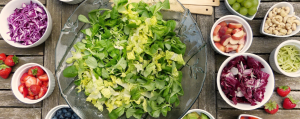
Is Being Vegan Healthy?
Good question! A vegan diet doesn’t automatically mean a healthy diet.
Although vegans commonly take an interest in how diet relates to health, and tend to educate themselves about nutrition, the vegan diet does not explicitly prescribe healthy foods. There is a vegan alternative for every junk food out there. And you can live on white toast with margarine and jam (and see your blood sugar levels sky rocket) while still being vegan – and that is certainly not healthy.
One thing that everyone agrees on is that the following is healthy:
- Enjoy an abundance of freshly prepared vegetables
- Minimise processed foods and instead cook meals from scratch
- Eat mindfully and slowly
- Choose local, organic foods
A plant-heavy, antioxidant-rich vegan diet can go some way to mediating chronic inflammation, and will certainly not hinder your attempts to be healthy. Given we don’t eat nearly as much fibre as we should for optimum health, committing to eating more veg is only going to be a good thing.
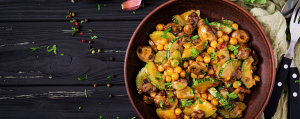
Things to be Mindful of on a Vegan Diet
- Vegan diets don’t provide enough vitamins and minerals needed for optimal health. These include vitamin D, which contributes to good bone health and boosts the body’s immune system. Dietary vitamin D is found most commonly in animal products, meaning those on vegan diets can struggle to get the recommended amount.
- Zinc plays a role in regulating the body’s immune system, but it can be hard to get it naturally if you’re a vegan. As zinc is found in very few plant-based foods, a deficiency can occur for those on a vegan diet.
- Many people try to be vegan by relying on fake food – they replace milk, cheese and meat with foods manufactured to look and taste as though they are milk, cheese and meat. Since food manufacturing is not like magic, what is used is non-foodstuffs, including stabilisers, gums, thickeners and highly processed protein extracts. You may also be counting your vegan cheese as a source of protein, when many of them are actually made from carbs.
- Readily-absorbed forms of vitamin B12 are found in animal products, making it difficult for those on a vegan diet to get the recommended amount. This can lead to a vitamin B12 deficiency.
- Several studies have shown that both vegetarians and vegans are also prone to deficiencies in calcium, iron, and essential fats.
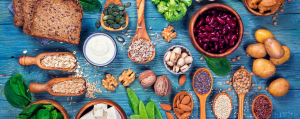
Getting Started on a Vegan Diet
Some people like to make changes all in one go. If this is you, choosing a vegan recipe book can be helpful to making a vegan diet easy and exciting. Other people might want to try changing one meal at a time, possibly having a vegan breakfast during the first week, adding a vegan lunch during week two, and so on. You could even try just changing one product at a time. This could be swapping traditional cow’s milk for almond milk, or butter for coconut oil. There’s a plant based alternative for most things you can think of.
One thing that you can look forward to is some exciting new recipes. Bringing veganism into your life for even just a few days a week can deliver a whole new taste experience. There will be things that you love and things the family rejects. It’s all part of the fun of discovering new things. So if you’re thinking of changing to a vegan diet, why not start today and see if it’s for you.



